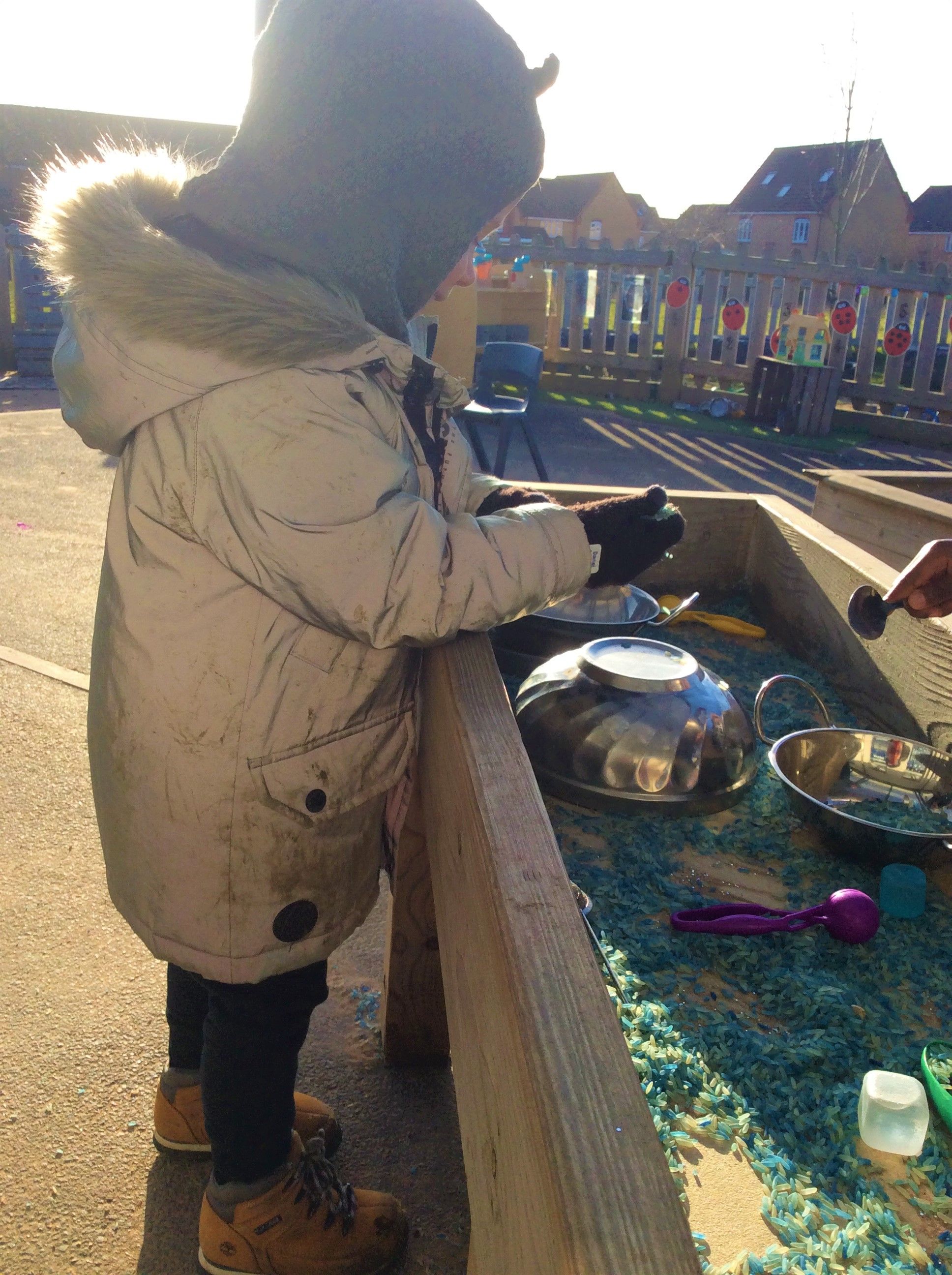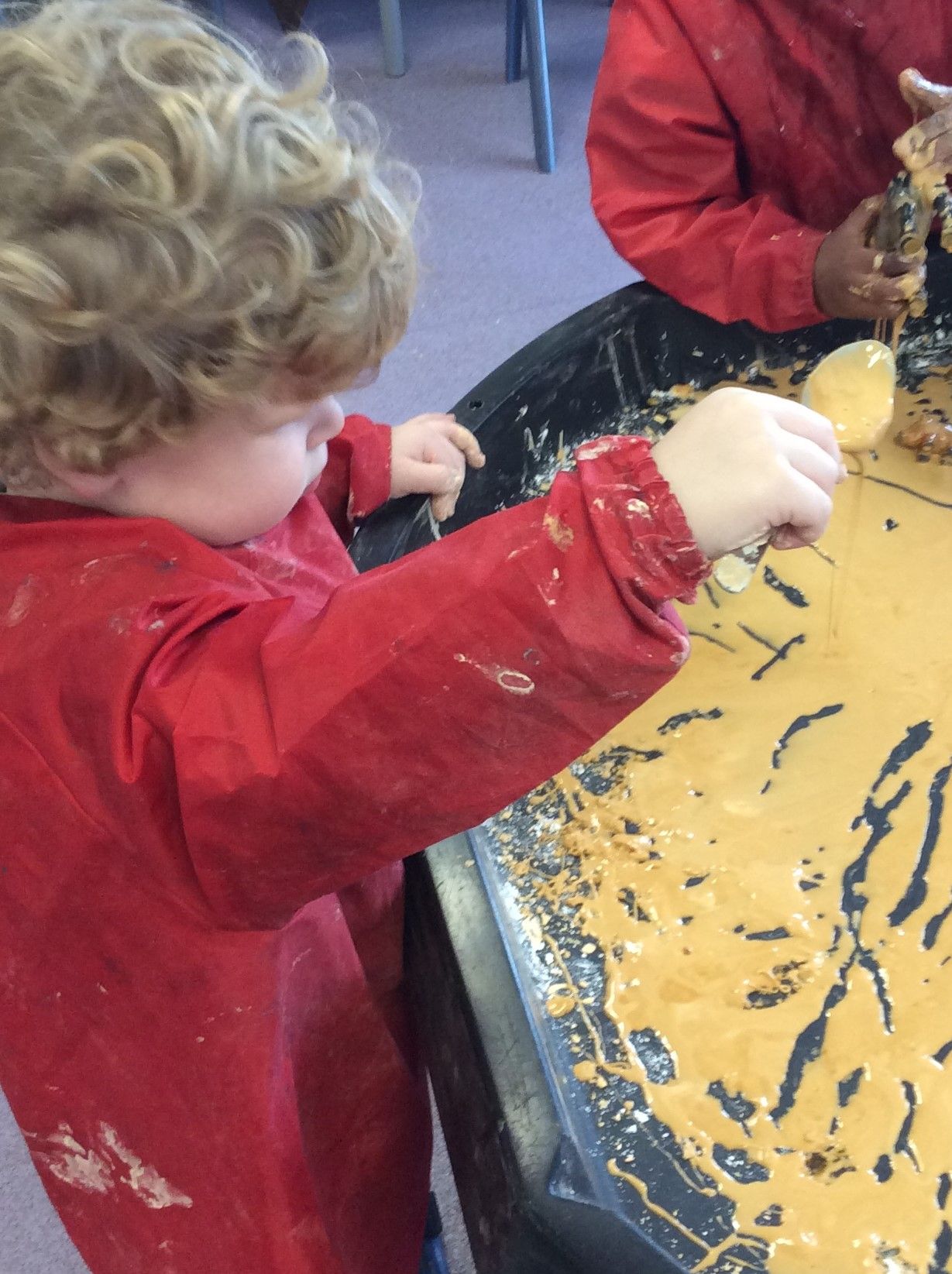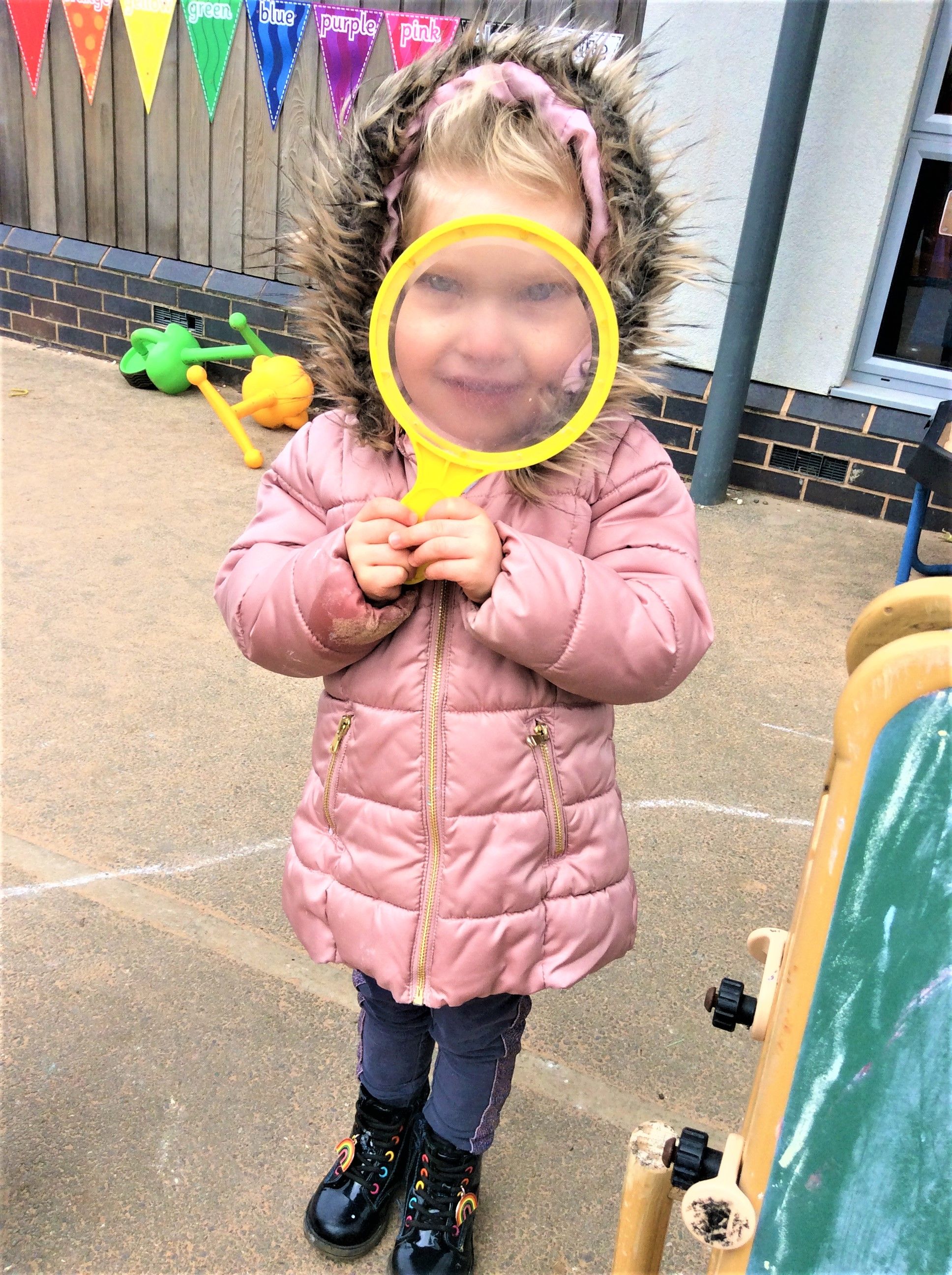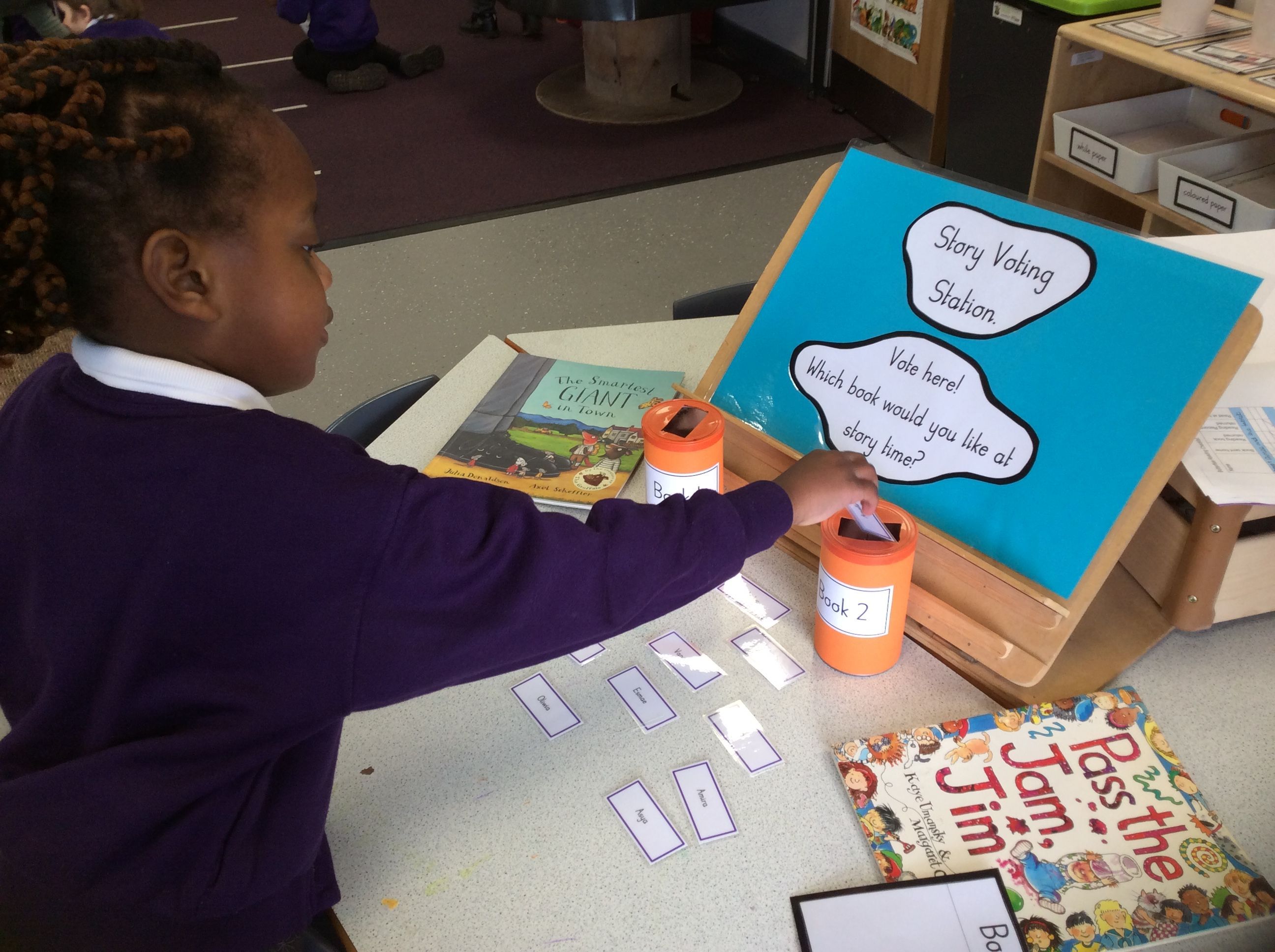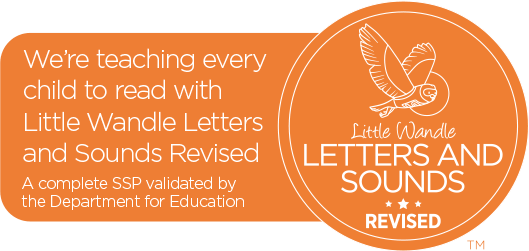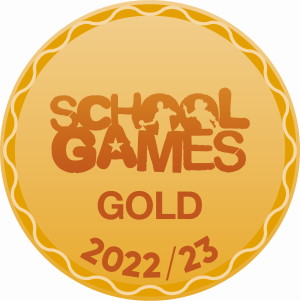EYFS
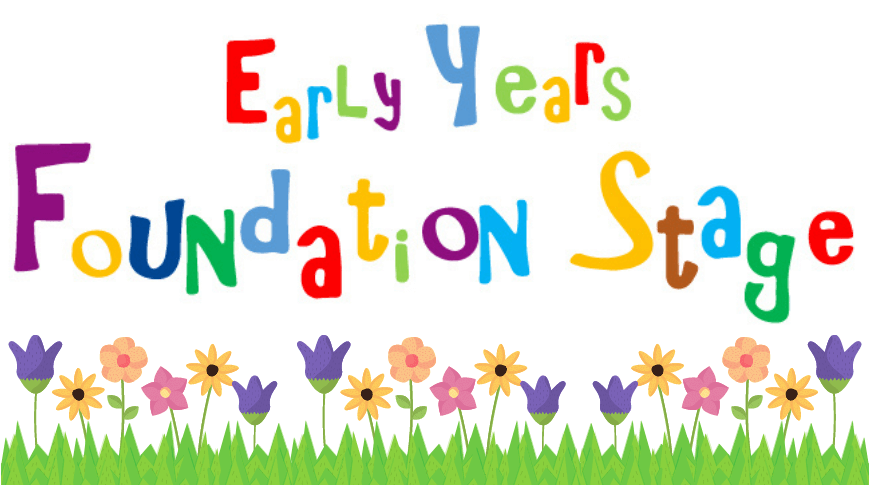
Early years education is about developing a love of and engagement with learning and creating an implicit motivation to grow and develop. It has the power to provide equal opportunities for all children to develop holistically.
Our youngest children should be excited about learning within their first few years at school where they can grow in both skills and knowledge, supported by creativity, discovery, exploration, and play.

Intent
At Uffington CE Primary School our curriculum is designed to recognise children’s prior learning, both from previous settings and their experiences at home. We work in partnership with parents, carers and other settings to provide the best possible start at Uffington Primary, ensuring each individual reaches their full potential from their various starting points.
Our enabling environments and warm, skilful adult interactions support the children as they begin to link learning to their play and exploration right from the start. We believe that high level engagement ensures high level attainment. We therefore provide an engaging curriculum that maximises opportunities for meaningful cross-curricular links and learning experiences, as well as promoting the unique child by offering extended periods of play and sustained thinking. We follow children’s interests and ideas to foster a lifelong love of learning both in and outside of school.
Implementation
In the Foundation Stage, children follow the Early Years Foundation Stage Curriculum. There are seven areas of learning and development that are taught in early years. All areas of learning and development are important and inter-connected. Three areas are particularly crucial for igniting children’s curiosity and enthusiasm for learning, and for building their capacity to learn, form relationships and thrive.
These three areas, the prime areas, are:
- Communication and language
- Physical development
- Personal, social and emotional development.
Children are also taught in four specific areas, through which the three prime areas are strengthened and applied. The specific areas are:
- Literacy
- Mathematics
- Understanding the world
- Expressive arts and design.
In planning and guiding children’s activities, staff reflect on the different ways that children learn and reflect these in their practice. Three characteristics of effective teaching and learning are:
- Playing and exploring - children investigate and experience things, and ‘have a go’
- Active learning - children concentrate and keep on trying if they encounter difficulties, and enjoy achievements
- Creating and thinking critically - children have and develop their own ideas, make links between ideas, and develop strategies for doing things.
Each area of learning and development is taught through planned, purposeful play and through a mix of adult-led and child-initiated activity. Play is essential for children’s development, building their confidence as they learn to explore, to think about problems, and relate to others. Children learn by leading their own play, and by taking part in play which is guided by adults. Activities are planned for, taking account of the children’s interests where possible.
Each term, EYFS staff introduce a new theme to provide inspiration for learning, whilst providing the flexibility for children to follow their own interests and ideas. Children learn through a balance of child-initiated and adult-directed activities. The timetable is carefully structured so that children have directed teaching during the day. The timetable changes throughout the year to take into consideration the changing needs of the children. These sessions are followed by small, focused group work. This means the teacher can systematically check for understanding, identify and respond to misconceptions quickly and provide real-time verbal feedback which results in a strong impact on the acquisition of new learning. Children are provided with plenty of time to engage in ‘exploration’ throughout the variety of experiences carefully planned to engage and challenge them in the provision. The curriculum is planned for the inside and outside classrooms and equal importance is given to learning in both areas.
Literacy and Reading is at the heart of our curriculum and our aim is to encourage a love of reading right from the start. Throughout the academy each class teach planned core texts each half term. Each class also has half-termly author baskets to read during story time. The aim is to expose children to a range of books that not only develop a love of reading, but have been chosen specifically to develop their oracy, vocabulary and comprehension. These books will be embedded in our provision through activities, story sessions and on display for children to access independently. Through this, children begin to internalise new vocabulary, language patterns and begin to retell stories.
To teach Phonics we follow the Litttle Wandle programme throughout EYFS and Key Stage 1. Children start the phonics programme as soon as they start in Reception.
Children are encouraged to read at home and are listened to regularly in school. They are given books that match their phonic knowledge in order for them to apply their learning with the aim of becoming successful, confident and fluent readers.
Click here to find out more about Phonics at Uffington.
In Reception we follow the Mastering Number scheme of work which is divided into 3-weekly units. High quality learning environments and meaningful interactions with adults support children in developing mathematical thinking and discussion. Pupils learn through games and tasks using concrete manipulatives and pictorial structures and representations which are then rehearsed, applied and recorded within their own child-led exploration.
Our wider curriculum is taught through the learning areas; ‘Understanding of the World’ and ‘Expressive Arts and Design.’ Exciting, purposeful and contextual activities are planned to build on children’s natural curiosity. Children will be encouraged to employ subject specific language and terminology in foundation subjects, and such vocabulary will be modelled, both verbally and orally, by supporting practitioners.
Our inclusive approach means that all children learn together, but we have a range of additional intervention and support for children who may not be reaching their potential, or are showing a greater depth of understanding and need further challenge. This includes, for example, sessions for developing speech and language, social skills, fine motor skills, phonics, and mathematics.
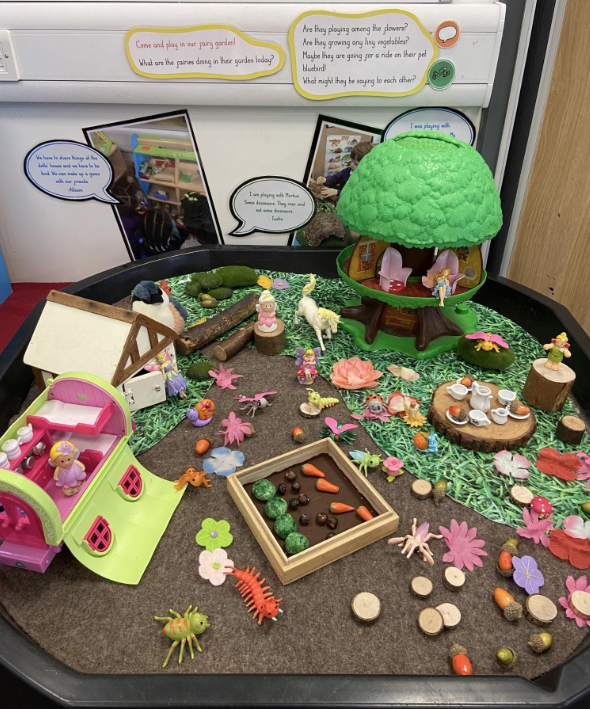
Impact
By the end of the Reception year our intent is to ensure that all children make at least good progress from their starting points and are equipped with the skills and knowledge to have a smooth transition into Year 1.
Assessment
Assessment plays an important part in helping staff and parents to recognise children’s progress, understand their needs, and to plan activities and support. On-going assessment is an integral part of the learning and development process. It involves staff observing children to understand their level of achievement, interests and learning styles, and to then shape learning experiences for each child reflecting those observations. At Uffington CE Primary School we use the Tapestry online learning journal, to record observations. These are then shared with parents who are encouraged to make comments on the observation and to also upload their own observations from home.
At the end of the year children are assessed against the Early Learning Goals as either Emerging or Expected. This is reported to parents in the annual end of year report. A child who has achieved ‘Expected’ in all of the Prime Areas as well as Literacy and Mathematics is classed as having a ‘Good Level of Development’.


